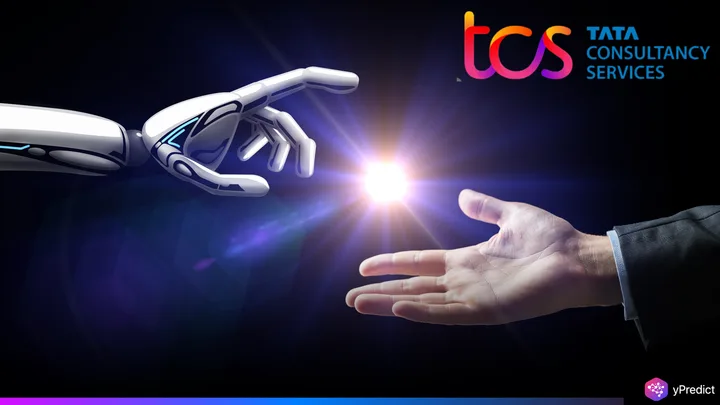
India’s largest IT firm, Tata Consultancy Services (TCS), is betting big on generative AI(GenAI), calling it a “civilizational shift” that will reshape industries and work. In a recent annual report, Tata Sons Chairman N Chandrasekaran unveiled TCS’s plan to deploy a large pool of AI agents to work alongside human employees. The goal is to build a “human+AI” model that transforms how services are delivered.
With over 6.07 lakh employees(over 600k) as of March 2025, TCS also aims to have the world’s largest AI-trained workforce. The company has already introduced its enterprise-grade platform, ‘TCS Wisdomnext’, and integrated AI across its operations. The move signals a bold leap toward automation, but TCS insists it’s not about job cuts, it’s about new roles and shared intelligence.
AI Agents Get a Name and a Job: TCS Launches ‘Wisdomnext’
TCS’s AI strategy revolves around a new platform, Wisdomnext, designed to deploy intelligent GenAI agents throughout its global operations. These AI agents handle routine tasks, support decision-making, and work in sync with humans. The goal is to deliver better speed, accuracy, and efficiency for clients. Chandrasekaran calls it “a human+AI model,” where both collaborate to solve real-world problems.
This includes use in areas like drug discovery, supply chain tracking, and customer service. In fact, one solution developed by TCS helped generate over 1,300 drug molecules for lab testing. “This isn’t another tech cycle. It’s a civilizational shift,” Chandrasekaran wrote in his letter to shareholders. The company is also investing in data centers, cloud infrastructure, and industry partnerships to make AI adoption easier for clients.
150+ AI Agents in Use, But the Road Ahead Isn’t Without Hurdles
TCS has already deployed over 150 domain-specific AI agents across its services. These tools are helping clients scale their AI use more effectively. CEO K Krithivasan noted a shift from isolated AI pilots to results-driven deployment based on return on investment. To support this, TCS is setting up AI labs and Centers of Excellence. However, concerns remain. Workforce growth in the IT sector has slowed, partly due to automation and post-COVID hiring surges.
Still, TCS maintains that GenAI won’t reduce job numbers; it will change job responsibilities. For example, employees will focus more on oversight, critical thinking, and problem-solving. TCS also announced leadership changes aligned with its AI vision, naming Aarthi Subramanian as President and COO, and Mangesh Sathe as Chief Strategy Officer. These appointments signal a commitment to long-term AI integration.
Can GenAI Reshape How Humans Work, Without Replacing Them?
TCS’s vision of a “human+AI” future prompts urgent questions about the future of work. The company argues that while AI is replacing repetitive tasks, it is also unlocking new kinds of human potential. Still, the transformation will need careful oversight. Ethical guidelines, fair regulations, and continued upskilling will be essential.
There’s also the challenge of ensuring AI systems, and the generative AI models behind them, are used responsibly and without bias. Yet, the pace of adoption shows no sign of slowing. With $39.4 billion in new contracts and 6% revenue growth in FY25, TCS is well-positioned to lead the change. Whether other companies follow its “human+AI” path or take different routes, one thing is clear: the future of work is already being rewritten.






